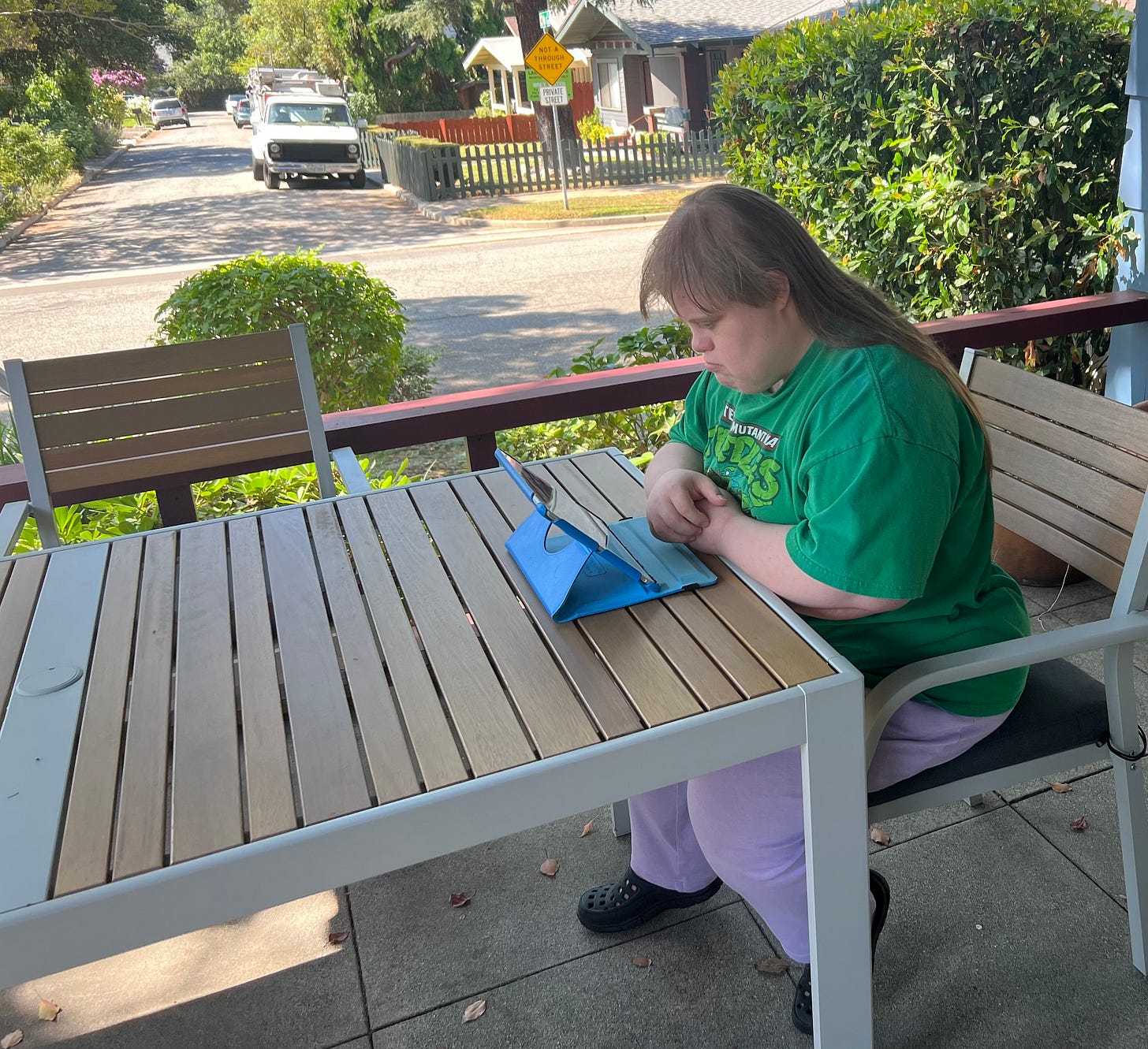Participants in the iBookClub: Elizabeth
Elizabeth as named in the Leader magazine name and is connecting to the iBookclub of Pasadena meeting via zoom. She knows she will keep track of the birthdays of the other participants so when another facilitator of the club asks her to name the month’s birthdays we will name them so we can sing to them later in the meeting. She contributes to the topics appropriately. The topic for one meeting was “Seasons” in which Elizabeth spoke of changing our clocks with the seasons, spring forward, fall back.
Elizabeth’s mother, the principal of the school where I worked as a speech language pathologist, took this photo. She had written a dissertation on inclusion of students. She advocated for accessing assistive technology for every student so they could participate in class with communication including reading and writing. She recognized that augmenting and assisting communication required different input of teaching methods and practice in speech pathology. She insisted that my caseload allow time to better meet the needs of students with complex communication profiles. An additional speech language pathologist was hired, much to my joy.
I learned that even in preschool, Elizabeth had been introduced to literacy program with a gifted linguistic who was teaching writing with an adaptive program she designed to be used on an Apple II GS computer. I had gone with Elizabeth to her linguist teacher to see them explore reading and writing. Small wonder that later in elementary school, Elizabeth wrote with the computer during her speech sessions. She does have something to say with writing and speaking.
I met her educator in that elementary school who challenged and set high goals for her students. These goals included literacy and understanding, inclusion and instruction, acceptance, and willingness to foster accommodations to make learning real. When Elizabeth’s parents met annually to set goals for the classroom, the educator prepared for the meeting by first listening to her parents assessment of accomplishments, realistic hopes, and measurable goals for instruction each year ahead. Mutual respect was felt by parents and educators as they wrote these meaningful goals with strategies best suited to Elizabeth.
Elizabeth has the diagnosis of Down syndrome. Her parents and her educators knew Elizabeth would develop her unique gifts as she lived life to fullest. Supported by family and those in her environment, our job was to watch, listen, and guided her. That also meant encouraging her to celebrate the Fourth of July in her hometown by riding and waving in her uncle’s convertible.
Her mother and I watched and listened at the annual Down Syndrome Congress in Los Angeles. Sparked by the can-do attitudes of attendees at the conference, I had to ask how improvements in multiple aspects of teaching affected each student’s learning, i.e. about how others in her environment influenced her education.
Elizabeth’s mother followed through as her daughter transitioned from high school to community where she sought employment and opportunities for activities in the community. Her parents knew that they needed to have patience as they negotiated with bureaucracies to support employment of persons with disabilities despite the multiple online and paper barriers, i.e. putting online complex applications.
Currently 2 days a week Elizabeth is a paid employee at Kidspace. She enjoys this specially designed children’s museum that delights and engages attendees in “joyful kid-driven experiences.” Her work along with her family support activities that strengthen each other “emotionally, intellectually, and physically.” We admire her decision making and independence in tackling new opportunities. Elizabeth is contributing to our iBookclub as a person and reader.

